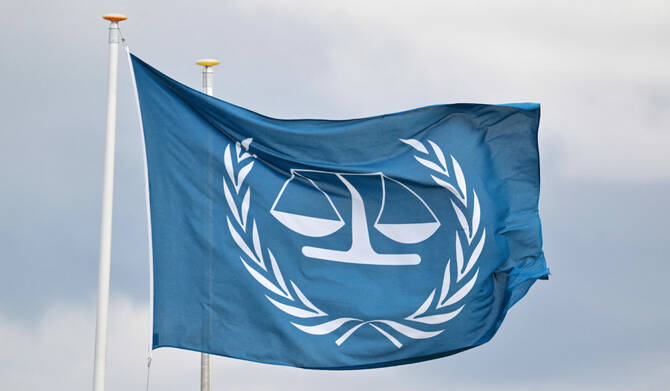THE HAGUE, Netherlands: After giving a red carpet welcome this week to Israeli Prime Minister Benjamin Netanyahu, who is wanted by the International Criminal Court for alleged crimes against humanity in Gaza, Hungary announced it would quit the court.
Should Hungary follow through with its withdrawal from the world’s only permanent global court for war crimes and genocide, it will become only the third country in the institution’s history of more than 20 years to do so. The process will take more than a year.
Hungarian Prime Minister Viktor Orbán, who gave the Israeli leader a welcome with full military honors on Thursday in defiance of the ICC arrest warrant, signed the Rome Statute, which established the court, during his first term in office.
What is the International Criminal Court?
The ICC was established in The Hague in 2002 as the court of last resort to prosecute individuals responsible for the world’s most heinous atrocities: war crimes, crimes against humanity, genocide and the crime of aggression. It takes on cases when nations are unable or unwilling to prosecute crimes on their territory.
Hungary signed the Rome Statute in 1999 and ratified the treaty on Nov. 30, 2001.
The court’s newest member, Ukraine, formally joined in January, bringing the number of member states to 125. The United States, Russia, China and Israel are among nations that are not members.
Judges at the court have issued 60 arrest warrants and convicted 11 people. Last month, the court arrested former Philippine President Rodrigo Duterte on murder charges linked to the deadly “war on drugs” that he oversaw while in office.
What is the process for leaving the court?
The Rome Statute lays out the steps a member state needs to take if they want to withdraw from the court. The state party must inform the Secretary-General of the United Nations and the withdrawal takes effect one year after the receipt of the notification.
Announcing it will leave, however, doesn’t free Hungary from its duties under the treaty.
“There is a provision which says that your obligation to cooperate continues for the cases that were ongoing when you were still a party,” Göran Sluiter, professor of international criminal law at the University of Amsterdam, told The Associated Press. “So they still have an ongoing obligation to arrest Netanyahu,” he said.
Zsolt Semjén, Hungary’s deputy prime minister, submitted a bill to parliament to approve the withdrawal, which is expected to pass.
Just two other countries have left the court. The East African nation of Burundi left in 2017 and, in 2019, then-President Duterte withdrew the Philippines after judges allowed the investigation into his drug crackdown that killed thousands to continue.
If Hungary leaves, it will become the only country in the European Union that is not a member of the court.
Why is Netanyahu wanted by the court?
A three-judge panel issued arrest warrants in November for Netanyahu, his former Defense Minister Yoav Gallant and Hamas’ military chief, Mohammed Deif, accusing them of crimes against humanity in connection with the 13-month war in Gaza.
The warrants said there was reason to believe Netanyahu and Gallant have used “starvation as a method of warfare” by restricting humanitarian aid and intentionally targeted civilians in Israel’s campaign against Hamas in Gaza, charges Israeli officials deny.
The warrant marked the first time a sitting leader of a major Western ally has been accused of war crimes and crimes against humanity by the global court of justice and has sparked major pushback from supporters of Israel, including the US
The ICC criticized Hungary’s decision to defy its warrant for Netanyahu, with the court’s spokesperson, Fadi El Abdallah, saying on Thursday that the court “recalls that Hungary remains under a duty to cooperate with the ICC.”
Human rights groups also have condemned the move.
“Hungary still has the opportunity to arrest Netanyahu — as unlikely as that seems, there’s still time. We expect other ICC members and particularly EU member states who are united in their commitment to the court to press Hungary hard on meeting its clear, legal obligations on arrest,” Liz Evenson, international justice director at Human Rights Watch, told the AP.
Last year, Mongolia refused to arrest Russian President Vladimir Putin during a state visit. Judges ruled Mongolia had failed to comply with its obligations and referred the matter to the court’s oversight board, the Assembly of States Parties.
















